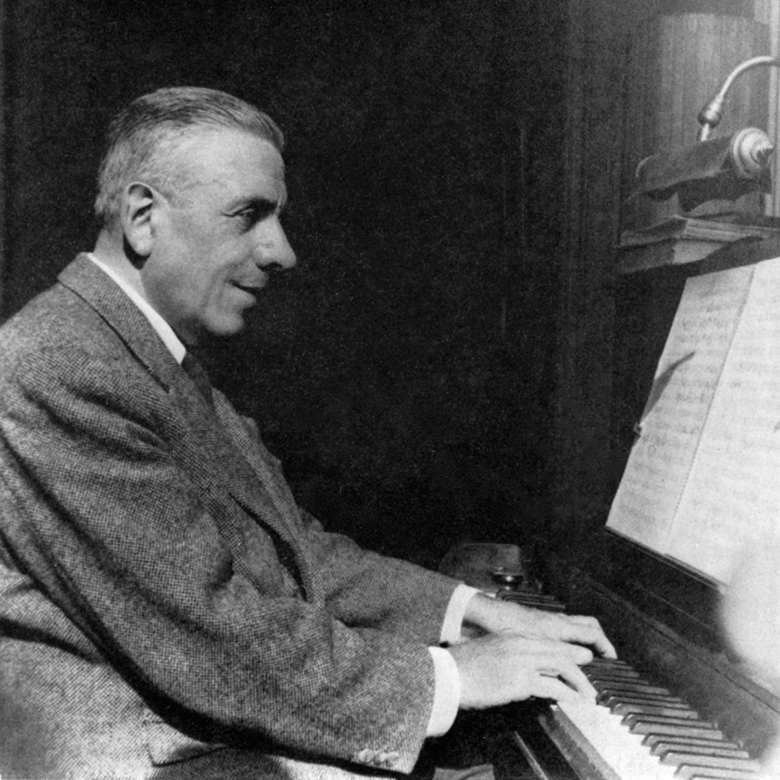Francis Poulenc: Biography
Tuesday, November 13, 2012

Born: Paris, January 7, 1899
Died: Paris, January 30, 1963
One of Poulenc’s friends described him as ‘moitié moine, moitié voyou’ (‘half monk, half guttersnipe’), which suits his physical appearance perfectly and goes halfway to describing his music. His face resembled that of the great French clown Fernandel and, especially in his early work, Poulenc does seem to revel in the role of the clown of French music. This was balanced by the Catholic faith he was born into, lost and then rediscovered in 1935.
His father was a wealthy pharmaceutist; his mother was the music lover and gave Francis his first piano lessons. In 1916, when he was 17, he continued these with one of the most respected pianists of the day, the Spaniard Ricardo Viñes, who gave the premieres of many of Ravel’s and Debussy’s piano music. Years later, Poulenc admitted ‘I owe him everything...it’s really to Viñes that I owe my first flights in music and everything I know about the piano’. The same year he was introduced to the father-figure of the young, irreverent group of French composers of the day, Eric Satie. Shortly afterwards, Poulenc had his first composition published, Rapsodie nègre. Overnight he was at the centre of the avant-garde circle in Paris and befriended the group of composers who came to be known as ‘Les Six’ - Auric, Durey, Honegger, Milhaud and Tailleferre.
After service in the French army (1918-21) – he composed his popular Trois mouvements perpétuels while on the Vosges front – he decided to take his musical education a little more seriously, but not too seriously: one of the charms of Poulenc’s music is that it is untainted by preconceived ideas and an academic conservatoire outlook.
He embraced the gay social life of 1920s Paris, producing a string of expertly crafted, witty, tuneful scores, ‘sometimes verging on triviality but never falling into vulgarity’ (as the critic Roland-Manuel neatly put it). Ballet commissions from Diaghilev, piano pieces of charm and elegance and, especially, songs flowed from his pen. In this latter field, he found his ideal interpreter in the gifted baritone Pierre Bernac. The two men became lifelong companions and provided inspiration for each other.
In 1935 Poulenc’s religious faith, which had diminished after his father’s death, was revived after a visit to the shrine of Notre Dame de Rocamadour. From here on, while never abandoning his role as the worldly, chic jester, a religious vein recurs through the remainder of his music. His final works were two sonatas: the Oboe Sonata written in memory of Prokofiev and the Clarinet Sonata written in memory of Honegger. He himself died suddenly in Paris.







